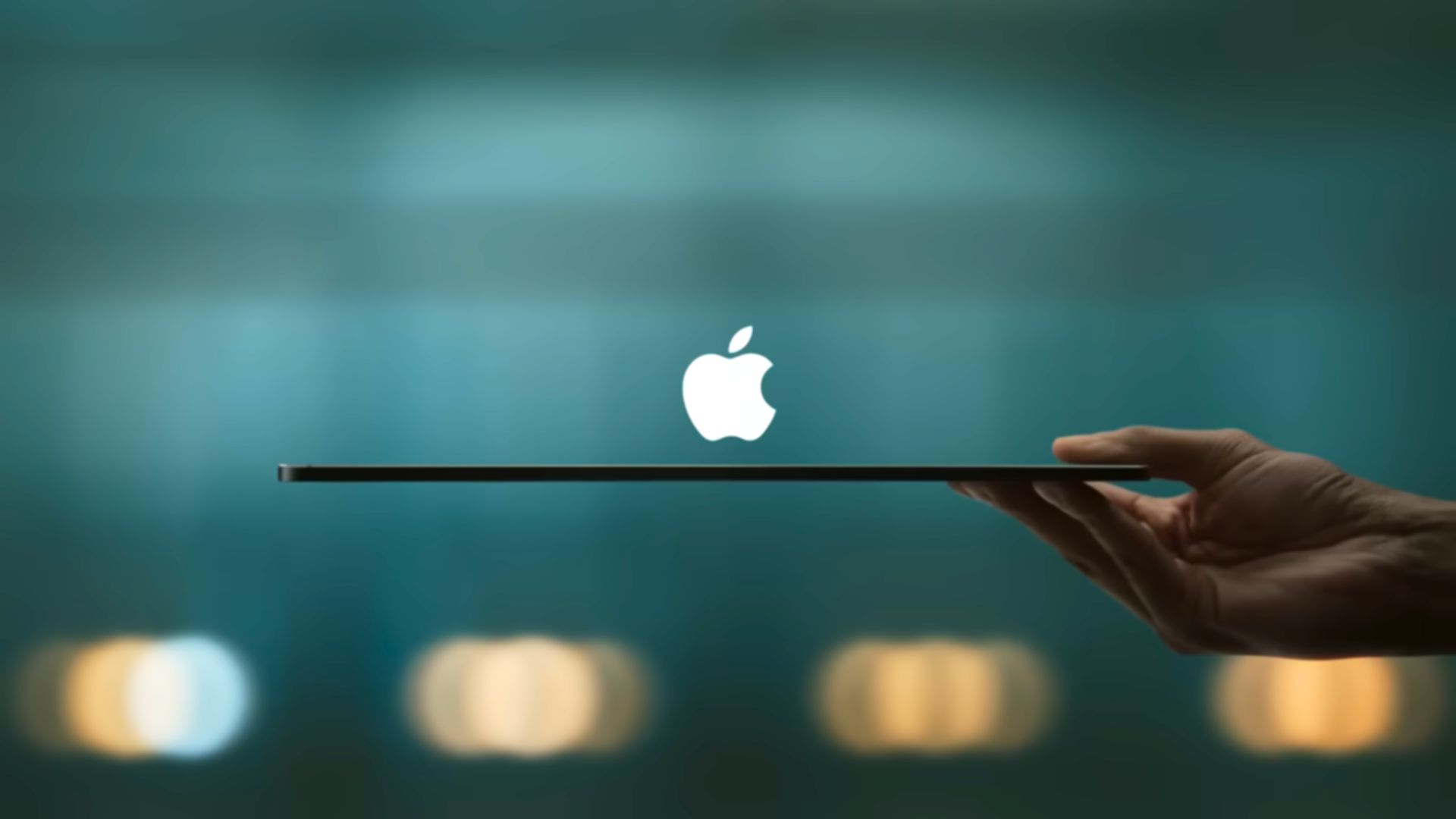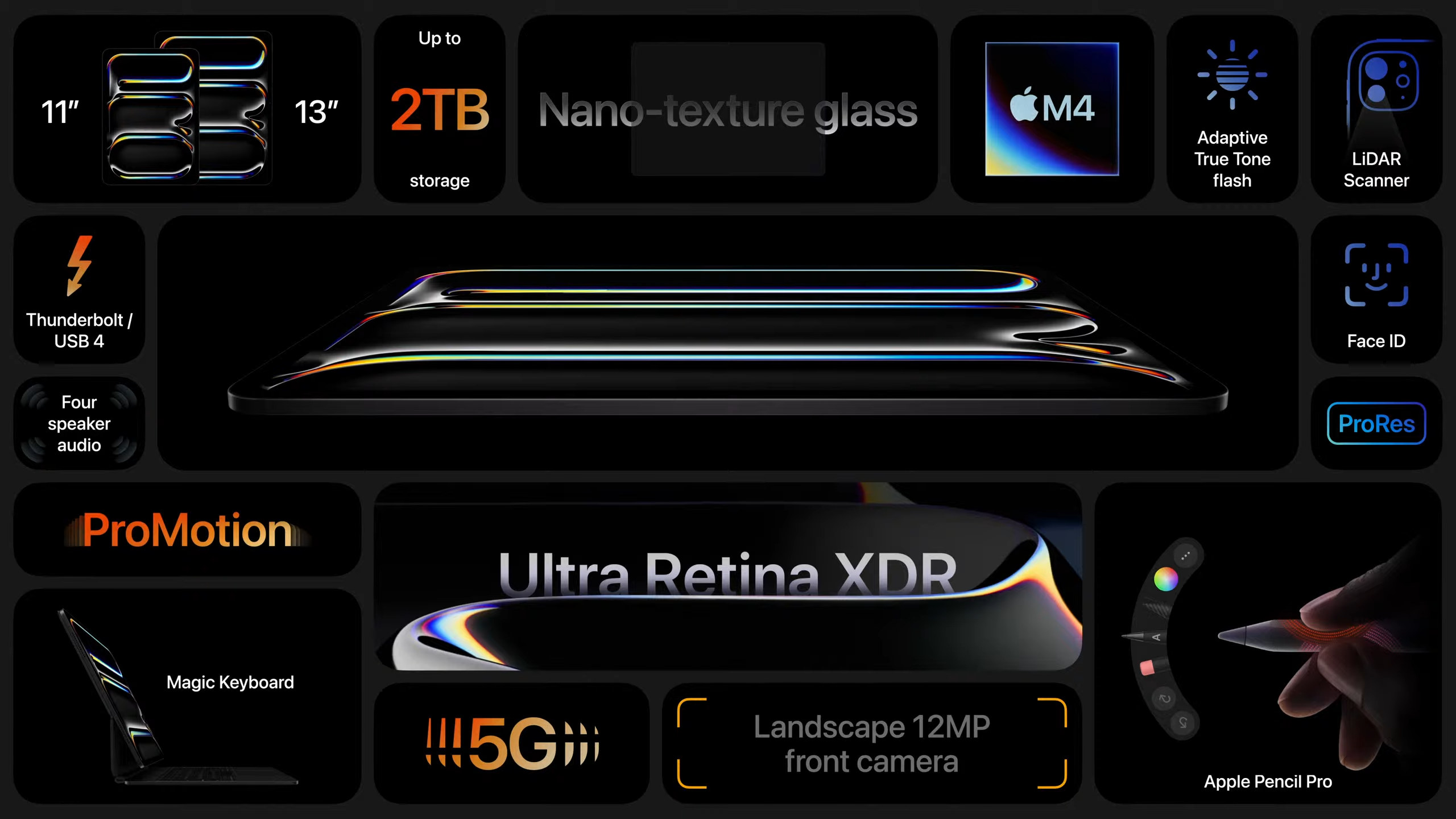Apple is making the iPhone, MacBook and Watch thinner, but what's the catch?
Durability and battery size might be up in the air

When Apple announced the iPad Pro M4 in May, the feature everyone was talking about was how thin it was. The 13-inch iPad Pro M4 is the thinnest product Apple has ever made, including the iPod Nano. Right now, it's also one of the most powerful products Apple ever released, making for an enticing combo of low weight and high processing power.
Apple is (allegedly) bringing that same design upgrade to the iPhone, MacBook, and Apple Watch. The question is, how thin can Apple make its top products without sacrificing durability and battery life? Is another "bendgate" durability scandal in Apple's future?
The iPad Pro M4 hints at the answer.
iPhone, MacBook and Apple Watch are getting thinner

Apple is entering its thin products era. According to Bloomberg's Mark Gurman, Apple is planning to slim down the iPhone, MacBook, and Apple Watch as it did with the iPad Pro M4. Apple analyst Ming-Chi Kuo corroborated this rumor, reporting on June 17 that the Apple Watch X will get a larger screen and thinner chassis than the current line-up.
The sheer thinness of the new iPad Pro has been its highlight feature since Apple announced it at a virtual event last month. Now it looks like Apple is planning similar redesigns for the rest of its product line-up.
It's still unclear when exactly we'll see these new ultra-thin devices, but a May 17 report from The Information speculated that the iPhone 17 will feature a thinner chassis and complete redesign, similar to the iPhone X design overhaul. Gurman also noted in his June 16 newsletter that the iPhone 17 will likely be the first to feature the thinner design.
If this pans out, Apple might also launch a redesigned MacBook the same year as the iPhone 17. That means we will likely see the thinner Apple Watch X next, potentially in September, then the iPhone 17 and redesigned MacBooks in 2025. The question is, will Apple need to make crucial compromises to achieve thinner designs?
Get The Snapshot, our free newsletter on the future of computing
Sign up to receive The Snapshot, a free special dispatch from Laptop Mag, in your inbox.
Will thinner designs sacrifice durability and battery size?
Back in 2014, shortly after Apple released the iPhone 6 and 6 Plus, a video went viral of YouTuber Unbox Therapy bending the iPhone 6 Plus with his bare hands. Lewis Hilsenteger, who runs Unbox Therapy, made the video after reports surfaced online that the iPhone 6 Plus was bending in people's pockets. It set off "bendgate," one of the biggest durability controversies Apple ever had.
As Apple aims to make all its products thinner, will durability become an issue again? It's not hard to imagine an iPhone as thin as the iPad Pro M4 bending in your pocket like the iPhone 6 Plus. The iPad Pro M4's chassis is even made of aluminum, just like the chassis on the iPhone 6 Plus that folded in Lewis Hilsenteger's bare hands.
Luckily, Apple seems to have found a solution in the 9 years since the "bendgate" incident. Apple's Senior Vice President of Hardware Engineering, John Ternus, explained how Apple accomplished this in the iPad Pro M4 in a rooftop interview with Arun Maini (known for his YouTube channel Mrwhosetheboss), commenting:
"We also have a cowling over the main logic board, a metal cover... it helps on both thermal spreading but it also effectively creates a central rib that runs through the whole thing that tremendously improves the stiffness of the product."
The iPad Pro M4 is the first product to include this structural design. Apple hadn't developed it yet back in the iPhone 6 Plus "bendgate" days. Early bend tests for the iPad Pro M4 showed that it was surprisingly durable despite how thin it is. So, it looks like it might be possible for Apple to maintain its durability standards even after slimming down the iPhone, MacBook, and Apple Watch.
The only thing still up in the air is battery life. It may be possible to maintain the current battery capacities in the MacBook Air and Pro in a slightly thinner chassis but the iPhone features a much smaller footprint to work with, making a large battery in a thin design a serious engineering challenge.
We'll be watching closely to see how Apple tackles that challenge with the iPhone 17. Until then, stay tuned for more rumors, news, and details on Apple's thin product overhaul, the iPhone 16 and 17, and more.
More from Laptop Mag

Stevie Bonifield is a freelance tech journalist who has written for PC Gamer, Tom's Guide, and Laptop Mag on everything from gaming to smartwatches. Outside of writing, Stevie loves indie games, TTRPGs, and building way too many custom keyboards.

